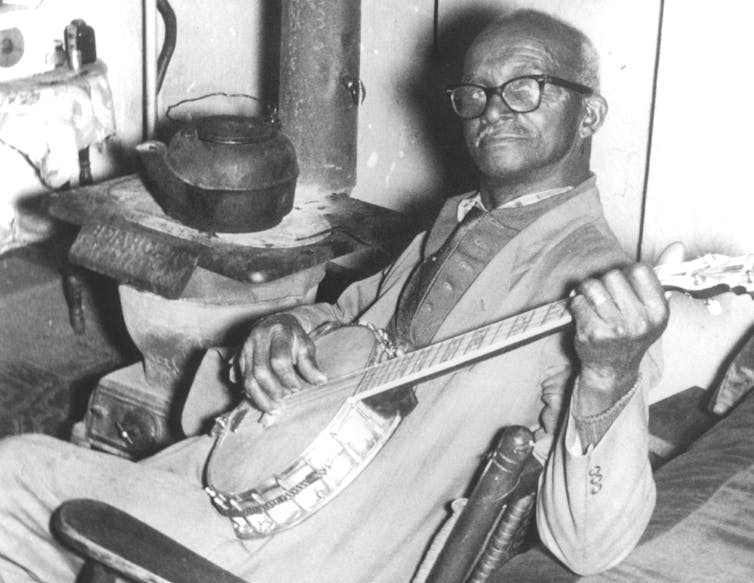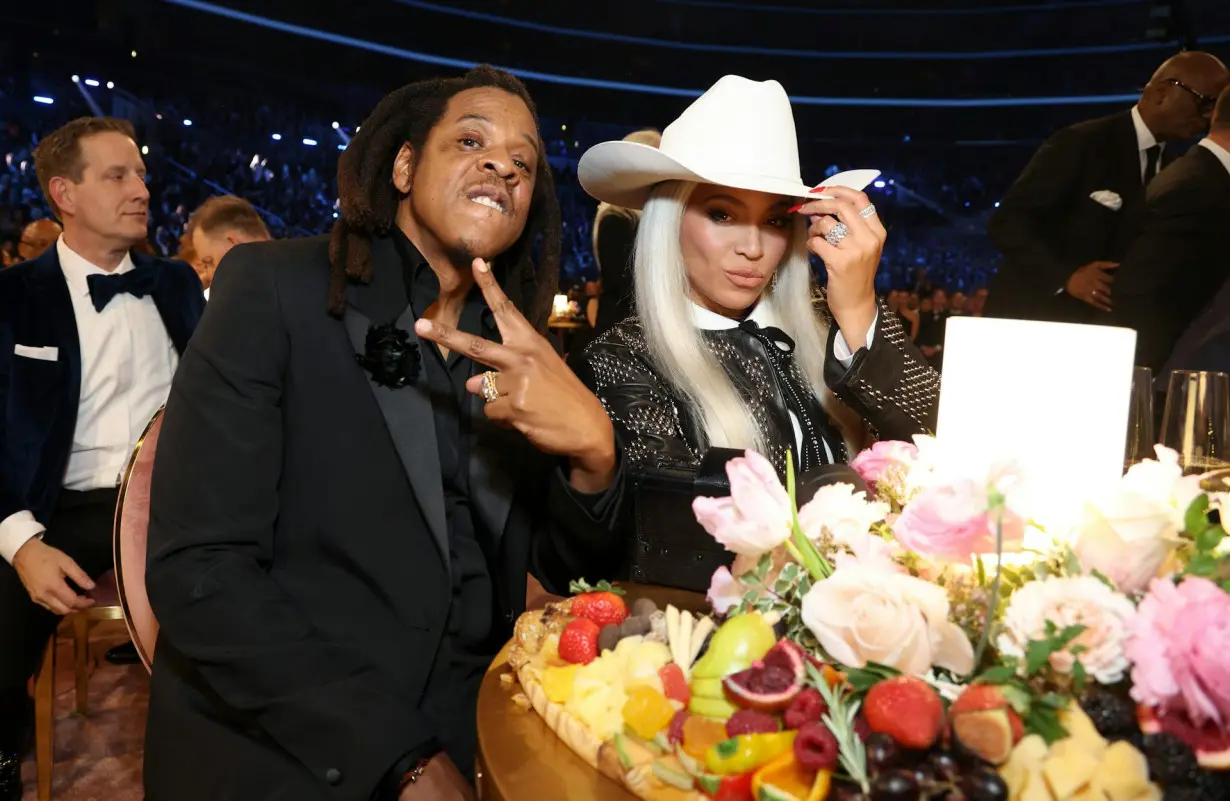On Super Bowl Sunday, Beyoncé released two country songs – “16 Carriages” and “Texas Hold ‘Em” – that elicited a mix of admiration and indignation.
This is not her first foray into the genre, but it is her most successful and controversial entry. As of last week, Beyoncé became the first Black woman to have a No. 1 song on the country charts. At the same time, country music stations like KYKC in Oklahoma initially refused to play the record because it was “not country.”
Many non-listeners stereotype country music as being white, politically conservative, militantly patriotic and rural. And you can certainly find artists and songs that fit that bill.
But the story of country has always been more complicated, and debates about race and authenticity in country are nothing new; they’ve plagued country artists, record companies and listeners for over a century.
As someone who researches and teaches Black culture and country music, I hope that Beyoncé’s huge profile will change the terms of this debate.
To me, Beyoncé’s Blackness is not the major bone of contention here.
Instead, the controversy is about her “countryness,” and whether a pop star can authentically cross from one genre to the next. Lucky for Beyoncé, it’s been done plenty of times before. And her songs are arriving at a time when more and more Black musicians are charting country hits.
Cross-racial collaboration
Americans have long viewed country music – or, as it was known before World War II, hillbilly music – as largely the purview of white musicians. This is partly by design. The “hillbilly” category was initially created as a counterpart to the “race records” aimed at Black audiences from the 1920s to the 1940s.
But from the start, the genre has been influenced by Black musical styles and performances.
White country music superstars like The Carter Family and Hank Williams learned tunes and techniques from Black musicians Lesley Riddle and Rufus “Tee-Tot” Payne, respectively. Unfortunately, few recordings of Black country artists from the early 20th century exist, and most of those who did record had their racial identity masked.
Johnny Cash’s mentor, Gus Cannon, proves a rare exception. Cannon recorded in the 1920s with his jug band, Cannon’s Jug Stompers, and he had a second wave of success during the folk revival of the 1960s.

Similarly, the genre has always included a mix of Anglo-American and Black American musical instruments. The banjo, for instance, has African roots and was brought to America by enslaved people.
In the case of “Texas Hold ‘Em,” which begins with a lively banjo riff, Beyoncé has partnered with Grammy- and Pulitzer Prize-winning MacArthur Fellow Rhiannon Giddens, America’s foremost contemporary Black banjoist and banjo scholar. (I would argue that this choice alone undercuts objections about the track’s country bona fides.)
Different tacks to navigate race
By releasing these tracks, Beyoncé joins performers like Charley Pride and Mickey Guyton – country stars whose success has forced them to confront questions about the links between their racial and musical identities.
Pride, whose hits include “Kiss an Angel Good Mornin’,” “Just Between You and Me” and “Is Anybody Going to San Antone?,” became, in 1971, the first Black American to win the Country Music Association’s Entertainer of the Year award. In 2000, he was the first Black American inducted into the Country Music Hall of Fame.
But throughout his career, Pride resisted attempts to emphasize his Blackness. From his 1971 hit “I’m Just Me” to his 2014 refusal to discuss his racial “firsts” with a Canadian talk show host, Pride consistently strove to be seen as a country artist who happened to be Black, rather than as a country musician whose Blackness was central to his public persona and work.
At the other end of the spectrum is Guyton, who gained recognition and acclaim for songs like her 2020 hit “Black Like Me” – a frank, heartfelt commentary on the challenges she’s faced as a Black woman pursuing a career in Nashville, Tennessee.
Both Pride and Guyton reflect the zeitgeists of their respective decades. In the wake of the civil rights struggles of the 1960s, Pride’s “colorblind” approach enabled him to circumvent existing racial tensions. He chose his material with an eye toward averting controversy – for example, he eschewed love ballads, lest they be understood as promoting interracial relationships. At the start of his career, when his music was released without artist photos, Pride made jokes about his “permanent tan” to put surprised white concertgoers at ease.
Guyton’s work, on the other hand, resonated with the national outrage over the murder of George Floyd and tapped into the celebration of Black empowerment that was part of the ethos of Black Lives Matter.
And yet I cannot think of another Black musical artist with Beyoncé’s cultural cache who has taken up country music.
Some might argue that Ray Charles, whose groundbreaking 1962 album, “Modern Sounds in Country and Western Music,” brought legions of new listeners to country artists, is a forerunner of Beyoncé’s in this regard.
Without diminishing Charles’ significance, I expect that Beyoncé’s forthcoming Renaissance II“ will outshine Charles’ landmark recording.
Black country in the 21st century
Over the past five years, in addition to the cultural event of Li'l Nas X’s "Old Town Road,” a significant number of Black musicians – including Darius Rucker, Kane Brown and Jimmie Allen, to name a few – have charted country hits.
The Black Opry Revue, founded in 2021 by music journalist Holly G, produces tours that bring together rising Black country musicians, giving each more exposure than performing individually could.
Luke Combs’ cover of Tracy Chapman’s “Fast Car” topped the country charts and made Chapman the first Black woman to win the Country Music Association’s Song of the Year award. Their performance of the song at the 2024 Grammys went viral, demonstrating both the fluidity of genres and the power of collaboration.
Beyoncé’s loyal fan base, known colloquially as “the Beyhive,” is already propelling “Texas Hold ‘Em” to the top of the pop and country charts. While there may continue to be pushback from traditionalist country music gatekeepers, country radio executives holding sway over national broadcast networks are calling Beyoncé’s new songs “a gift to country music.”
As more and more listeners hear her directive to “just take it to the dance floor,” perhaps the sonic harmony of the country genre will translate to a new way of thinking about whether socially constructed categories, like race, ought to segregate art.
And what a revolution that would be.

William Nash does not work for, consult, own shares in or receive funding from any company or organization that would benefit from this article, and has disclosed no relevant affiliations beyond their academic appointment.
Source: The Conversation



 Beyoncé and her husband, Jay-Z, at the 66th Grammy Awards on Feb. 4, 2024, in Los Angeles.
Beyoncé and her husband, Jay-Z, at the 66th Grammy Awards on Feb. 4, 2024, in Los Angeles.